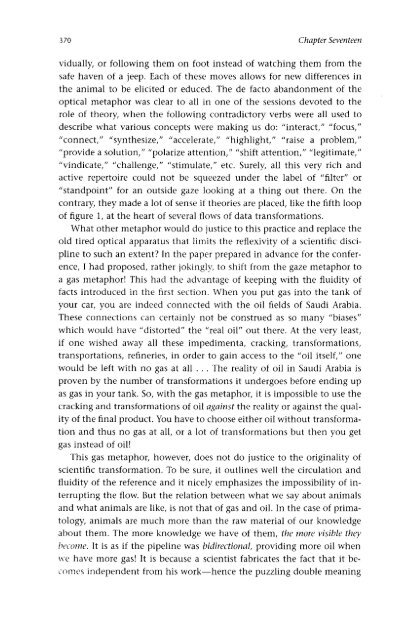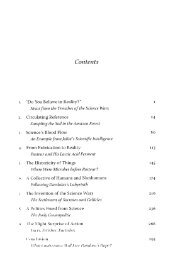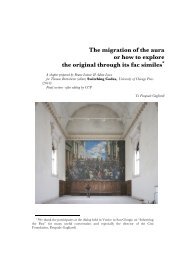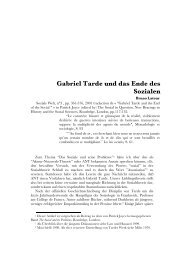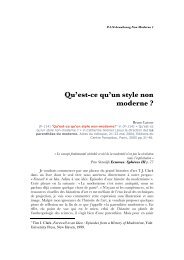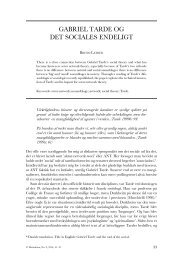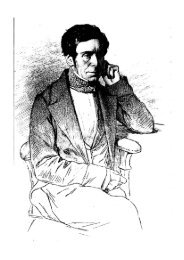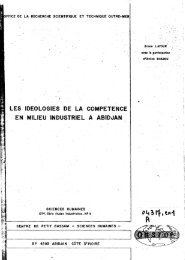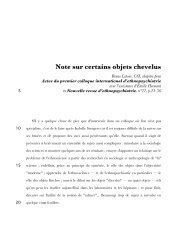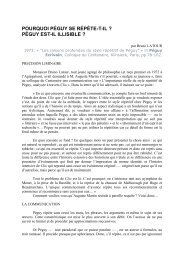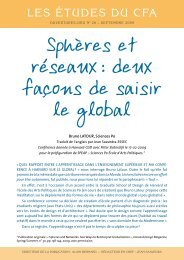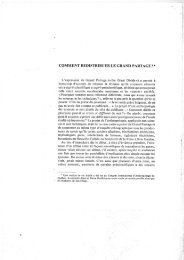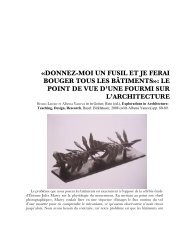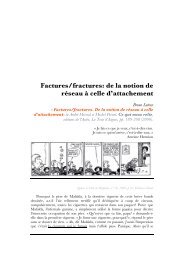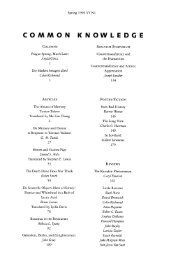A Well-Articulated Primatology - Bruno Latour
A Well-Articulated Primatology - Bruno Latour
A Well-Articulated Primatology - Bruno Latour
You also want an ePaper? Increase the reach of your titles
YUMPU automatically turns print PDFs into web optimized ePapers that Google loves.
370 ChaDter Seventeen<br />
vidually, or following them on foot instead of watching them from the<br />
safe haven of a jeep. Each of these moves allows for new differences in<br />
the animal to be elicited or educed. The de facto abandonment of the<br />
optical metaphor was clear to all in one of the sessions devoted to the<br />
role of theory, when the following contradictory verbs were all used to<br />
describe what various concepts were making us do: "interact," "focus,"<br />
"connect," "synthesize," "accelerate," "highlight," "raise a problem,"<br />
"provide a solution," "polarize attention," "shift attention," "legitimate,"<br />
"vindicate," "challenge," "stimulate," etc. Surely, all this very rich and<br />
active repertoire could not be squeezed under the label of "f,lter" or<br />
"standpoint" for an outside gaze looking at a thing out there. On the<br />
contrary, they made a lot of sense if theories are placed, like the fifth loop<br />
of ûgure 1, at the heart of several flows of data transformations.<br />
What other metaphor would do iustice to this practice and replace the<br />
old tired optical apparatus that limits the reflexivity of a scientific discipline<br />
to such an extent? In the paper prepared in advance for the conference,<br />
I had proposed, rather jokinglv, to shift from the gaze metaphor to<br />
a gas metaphor! This had the advantage of keeping with the fluidity of<br />
facts introduced in the first section. When you put gas into the tank of<br />
your car/ you are indeed connected with the oil fields of Saudi Arabia.<br />
These connections can certainly not be construed as so many "biases"<br />
which would have "distorted" the "real oil" out there. At the very least,<br />
if one wished away all these impedimenta, cracking, transformations,<br />
transportations, refineries, in order to gain access to the "oil itself," one<br />
would be left with no gas at all . . . The reality of oil in Saudi Arabia is<br />
proven by the number of transformations it undergoes before ending up<br />
as gas in your tank. So, with the gas metaphor, it is impossible to use the<br />
cracking and transformations of oil against the reality or against the quality<br />
of the final product. You have to choose either oil without transformation<br />
and thus no gas at all, or a lot of transformations but then you get<br />
gas instead of oil!<br />
This gas metaphor, however, does not do justice to the originality of<br />
scientific transformation. To be sure, it outlines well the circulation and<br />
fluidity of the reference and it nicely emphasizes the impossibility of interrupting<br />
the flow. But the relation between what we say about animals<br />
and what animals are like, is not that of gas and oil. In the case of primatology,<br />
animals are much more than the raw material of our knowledge<br />
about them. The more knowledge we have of them, the tnore visible they<br />
becorne. It is as if the pipeline was bidirectional, providing more oil when<br />
n'e have more gasl It is because a scientist fabricates the fact that it becorrcs<br />
independent from his work-hence the puzzling double meaning


